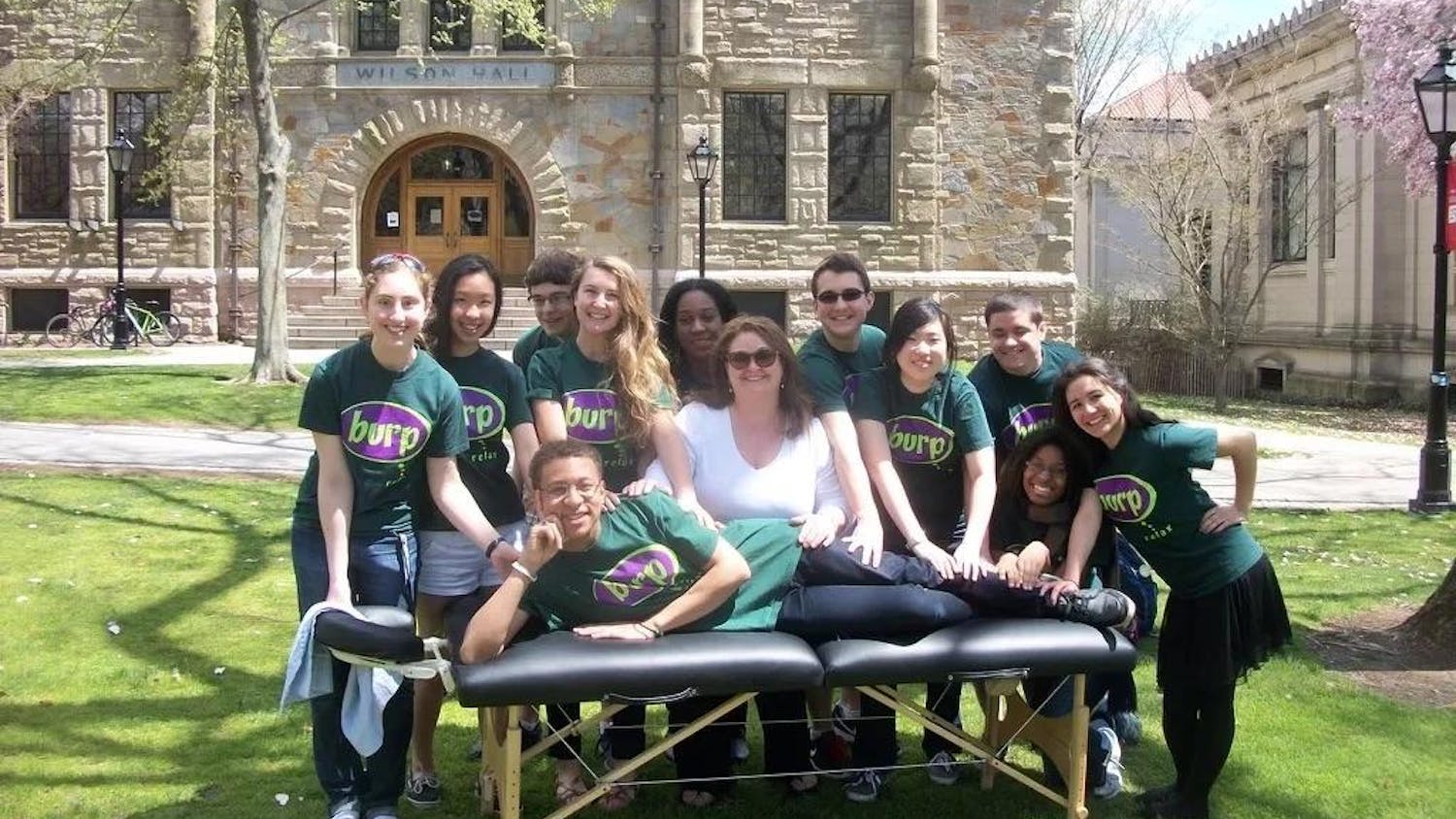It's a quiet morning on the Taft Avenue Daycare Center playground, nestled behind the Brown Stadium. Among the many children enjoying their morning playtime, baby Max sleeps peacefully in his strawberry beanie. Less than three years old, he has no idea how many parents wish their children could be in
his position.
The infant care center — with a capacity of just 20 children and a waiting list of over a year — is currently the only one of its kind to cater exclusively to Brown faculty, staff and students.
"We get two to three calls a day looking for childcare," said Mary Castrignano, the center's director. "We're now accepting enrollment for May 2010."
The only other facility that gives preference to the University community, the Brown/Fox Point Early Childhood Education Center on Hope Street, reserves about 60 percent of its space — 44 of 76 slots — for faculty, staff and students, and caters to children between the ages of three and six, said Chris Amirault, executive director of the facility.
Given these limited opportunities for affordable, quality childcare near campus, many Brown employees are looking to the University to provide greater access to childcare services and information.
Parents who are unable to enroll their children in University-affiliated childcare programs are at the "mercy of the market," said Pauline Luong, associate professor of political science, who drops off her 4-year-old twins at Brown/Fox Point.
"We've been lucky," she said, "but I don't think our experience is common."
Long waiting lists and admission lotteries at care centers force many Brown families to turn to more expensive facilities — a scary proposition in the current economic climate. But recent efforts by the University might offer some respite.
Acknowledging the difficulty of obtaining adequate childcare, Brown is working with Mount Hope Daycare to open eight new infant care slots at the facility's Hope Street location this fall, said Drew Murphy, director of benefits in the University's human resources
department.
But the effort — like cleaning one child's hand in a room full of finger-painting toddlers — represents an insufficient and temporary solution to a state-wide problem.
The biggest concern
The University has formed various committees and conducted numerous studies on childcare over the past few decades, Amirault said.
A survey administered to faculty and staff in spring 2007 identified full-day childcare — especially infant and toddler care — as the number-one concern, Murphy wrote in an e-mail to The Herald. "Following closely behind," he wrote, "was the need for emergency backup care when regular daycare arrangements fall through."
In an effort to offer more of such backup care during emergencies, the University began offering subsidized care to the children of faculty members through the Work Options Group last September. A national backup care company, Work Options offers up to 100 hours of care for a nominal co-payment — $2 per hour for in-center care and $4 per hour for home care, Murphy said.
More faculty members have started using the service in the last few months — increasing from 109 hours in January to 369 in March, Murphy wrote in his e-mail.
But graduate students are not eligible for the service, which falls under the category of a University benefit, said Cairn Smith, senior benefits specialist in human resources.
Michele Mericle, a graduate student in the history department, said emergency backup care has been a major concern for her 3-year-old daughter. "It happens all the time," she said. "If she gets sick, what do I do? I don't have family in the area. I can't bring her to grandma."
Finding a balance
Though Taft Avenue Daycare and Brown/Fox Point both maintain relationships with the Brown community, each facility has its own tuition and admission policies.
Neither facility is subsidized by the University, but both occupy University buildings at no cost. In exchange, Brown/Fox Point gives priority to Brown families in its lottery system every year, Amirault said, adding that there are generally about 100 applicants for 40 or 50 slots.
Brown/Fox Point decides fees on a case-by-case basis, using a sliding scale as a guide, Amirault said. He said weekly tuition ranges from $100 to $240.
In contrast, tuition at the Taft Avenue facility is determined on a fixed sliding scale based on annual income. Fees for full-time care range from $155 to $200 per week.
Those with low income, including some graduate students on stipends, can seek state aid through the Child Care Assistance Program run by the Department for Human Services.
But following state budget cuts in 2007, this aid was drastically reduced, and within the following year, the number of children enrolled in the program fell from 12,000 to 9,000, according to a 2008 press release from Rhode Island Kids Count, a policy organization that seeks to improve the care and development of the state's children.
Reduced state aid, coupled with the current economic situation, affects both families and childcare providers, Amirault said. As families pull their children out of care, providers — running on tight margins — are forced to close their doors, he said.
The state does not fully reimburse facilities for the cost of caring for children on aid, said Carol Mahoney of the Mount Hope Daycare.
Infant care is particularly expensive for childcare providers as the state mandates lower student-to-teacher ratios and requires the presence of a nurse for infant care, Mahoney said.
She added that economic realities are often in conflict with the emotional aspects of providers' jobs.
"You have a business side, but you also have a compassionate side," Mahoney said.
‘It takes money'
Sitting down for a hearty snack of raisin bread and orange juice in his Taft Avenue Daycare classroom, 4-year-old Liam shows off his newly learned writing skills. "I'll show you how to make an S," he says. "It's like skiing — I'm a super good skier."
He traces the S shape over and over on the paper, each time dragging the pen back up through his letter to start again. Maybe it's a trick of the eye, but it seems that dollar signs — not S's — cover the page.
Most local childcare centers are not-for-profit, Amirault said, adding that Brown/Fox Point obtains the majority of its funding from tuition, federal financial aid, fundraising and grants.
Amirault said he thinks early childhood education professionals are not valued by society.
"Childcare is largely subsidized on the backs of (the care providers) who do not get paid what they are owed," he said, adding that he pays his employees at Brown/Fox Point about $30,000 a year, far below what he believes they deserve.
"It takes money, and oversight and spine and political will," he said.




